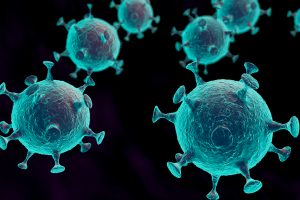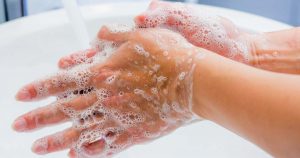
Healthcare associated infections or HAIs
Healthcare associated infections or HAIs are infections that are contracted within a healthcare setting. Illness, age, and some treatments being received can all make patients vulnerable to contracting infections while in hospital. Although healthcare settings work tirelessly to stop infection breakouts, they can still occur, putting patients, staff and visitors at risk.

What is an HAI?
Some infections can be caused by micro-organisms that are already in the body. However, many infections originate from micro-organisms from other patients either by direct contact or through a contaminated environment.
They can be particularly dangerous because they can exacerbate underlying health conditions, delay a patient’s recovery and affect quality of life.
Common Healthcare Associated Infections
MRSA
Meticillin resistant Staphylococcus aureus or MRSA has become dangerous because of its resistance to methicillin and some other commonly used antibiotics. It can be carried on the skin and be harmless. But if it gets inside the body via a wound, burn, feeding tube, drip into a vein, or urinary catheter, it can be harmful.
Clostridium difficile
This bacteria can cause diarrhoea. It commonly affects people who have been recently treated with antibiotics, which is why infections can occur in healthcare settings. It can be easily spread between people.
Norovirus
This is sometimes known as the winter vomiting bug. It’s highly contagious and is the most common cause of stomach bugs.
Seasonal Influenza
This is a contagious respiratory viral infection that spreads by coughing, sneezing and via contaminated environments. Most people don’t require medical treatment, but it can be very dangerous if you catch the flu while in hospital and vulnerable.
 How to reduce the risk
How to reduce the risk
It’s estimated that 300,000 patients each year acquire an HAI in England. That is why it is crucial for all healthcare settings to maintain high standards of infection prevention and control to minimise the risk.
Hand Hygiene
Washing hands correctly is a simple thing to do, but it is vital to help stop the spread of potentially dangerous micro-organisms.
You should wash your hands:
- Before touching a patient
- Before clean/aseptic procedures
- After body fluid exposure
- After touching a patient
- After touching a patient’s surroundings
Environmental Hygiene
Contaminated surfaces can be instrumental in causing infection outbreaks. Suitable cleaning practices must be in place to reduce the number of infectious agents present on surfaces.
 Safe use of PPE
Safe use of PPE
Staff should wear PPE when treating patients. Masks, eye protection and face shields can protect from splashes of blood and bodily fluid during procedures and patient care. Gloves can also be worn when touching blood, bodily fluids and contaminated items.
Gloves are not a substitute for hand washing and should be changed after every procedure. Gowns and other PPE items should be changed and disposed of carefully to reduce the risk of infections spreading.
Cleaning of Patient Care Equipment
All reusable items that come into contact with patients should be cleaned properly before use. We recommend you invest in a washer disinfector to ensure all equipment is cleaned correctly and disinfected.
Let us help
Dekomed has a range of washer disinfectors and bedpan washers that will ensure all your items are safe to reuse.
 For surgical equipment and reusable medical items, we have 4 different washer disinfectors to choose from. Made from stainless steel, they are efficient, safe and reliable. In addition, they ensure that any bacteria living on a surface doesn’t survive and cannot be passed to another patient.
For surgical equipment and reusable medical items, we have 4 different washer disinfectors to choose from. Made from stainless steel, they are efficient, safe and reliable. In addition, they ensure that any bacteria living on a surface doesn’t survive and cannot be passed to another patient.
If you use reusable bedpans and urine bottles, you should not be washing them by hand. Not only are you putting patients at risk, but you are also risking infections being spread to healthcare workers. Our bedpan washers are versatile and can fit a lot of equipment, including suction jars and kidney bowls.
If you are considering making changes to your infection control processes, then it’s the perfect time to invest in a washer disinfector. With 30 years experience, we can help you find a machine that’s suitable for your staff and setting and will help you install and look after it too.
For more information on how a washer-disinfector can help you keep infection outbreaks under control, get in touch.
Tel:+44 (0)161 483 7333
